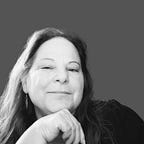There’s only one prerequisite for writing that’s universal. You must read as well. The best writers are often born of voracious readers. I don’t claim to be one of the best writers, yet, after all there’s always hope, but reading? It’s been my salvation. Anything is possible in a book. I don’t read for technique. I don’t read for style. I don’t read for self-improvement. I read to fill my soul with possibility. The rest is a byproduct.
It began early on. First Grade. It was, for me, a competition with the boy down the street. Who could advance faster through the workbook readers and get to read the real books in the school library on the second grade shelf. I had my eye on a few. Encyclopedia Brown. He was the hot commodity. And right now you’re mentally calculating my age after googling that little tidbit. Back to our young detective. If I could read that, maybe I’d be allowed to read Harriet the Spy. Slightly more advanced reading. I succeeded. So did little Clark Kent as I fondly called the neighbor boy. It was the glasses I’m sure. But seriously, he really looked like a miniature Clark Kent. I read those books, the ones I’d coveted and inspired me to read, over and over. Their whimsy and style are built into my writing to this day. Unintentionable byproduct.
Harriet and Encyclopedia have stayed with me. Left their mark. Harriet because she was, well, Harriet. This was a book that allowed girls to be who they were. I wasn’t dainty and charming and polite and full of sugar. I was imperfect by any measure in a Barbie doll world that had yet to evolve. And so was Harriet. The beauty of this character was that at the end of the book, she’d learned a thing or two about life, and about herself, but it didn’t fundamentally change her. She remained solidly who she was. Flaws and all. At the time, there were lots of books with girls who climbed trees and played sports. But at the end of the day, or the book, they put on that party dress, curled their hair and behaved, ahem, like a girl.
Not Harriet. Louise Fitzhugh was a genius. She gave us a girl who, at the end of the day, didn’t need to put on that party dress to solve her inner struggles. She simply had to learn a few life lessons in kindness to others. But to herself? She had self-esteem by the bucket load and didn’t need to improve. Fitzhugh gave her that. If you haven’t ever read Harriet the Spy, do so. It’s timeless.
Encylopedia Brown was total kid empowerment. He ran around solving all the mysteries in his town. With the help of his trusty sidekick, and bodyguard, Sally. Yes, he had the brains, but she had the toughness. Together they gave me the sense that boys and girls could not only be friends, but friends on equal footing. And taught a valuable lesson. That stereotyping boys as tough and girls as bookish wasn’t necessary or desirable or realistic.
Both of these treasures taught me something as a writer. That young readers deserve complexity in their characters. They need varying points of view. They need to be given a chance to relate to the characters rather than be given a lesson on the benefits of conformity.
As I got older I found new treasures. Each one inspiring me in different ways. Which is inevitably what every writer must have. Inspiration. A spark. A voice. But I also encountered disappointment. Not to incite angry pushback but On The Road? Please. My 10th Grade English teacher asked how we liked it after the first few chapters were read. I raised my hand to comment. I was the only one. Left adrift on a desert island of bravery. My oh-so-inspirational teacher looked at me, smiled, head tilted, waiting to hear the surprise out of my mouth. I was kind of full of those. And she respected it. I loved her for that.
Me: “It kind of sucks.”
There. I said it.
My Oh-So-Inspirational Teacher: “Show of hands, anyone else think it, eh, sucks?”
Then, many of my traiterous comrades raised their hands. Of course they did.
My Oh-So-Inspirational Teacher: “OK, what would you all like to read instead?”
I’m confident right then that my classmates were all silently offering up thanks to me. Their new goddess of Sophomore English.
I can say now, without hesitation, that it’s not a terrible book at all. As an adult I can say that. At 14? I couldn’t possibly appreciate it. My existing knowledge base of life before my time was limited. I didn’t have any frame of reference for much of Kerouac’s wickedly keen sense of observation.
My teacher did tell me later on, that knowing my appetite for reading, she knew if I didn’t like it, others would feel perhaps the same way. It was tantamount to telling me my opinions mattered. I mattered. Reading mattered.
I do wonder if there is a fuel gauge inside my being that dictates I’ve absorbed enough, time to let it out. Perhaps I will write for a month, then read for two months. Then write some more. Reading and Writing. Balance. In and out.
Breathe.
Reading will take you places and fill your mind and soul with possibilities. It will inspire. It will provide unintentional benefits.
Read as if words are your oxygen. Breathe in.
Then breathe out.
Write.
